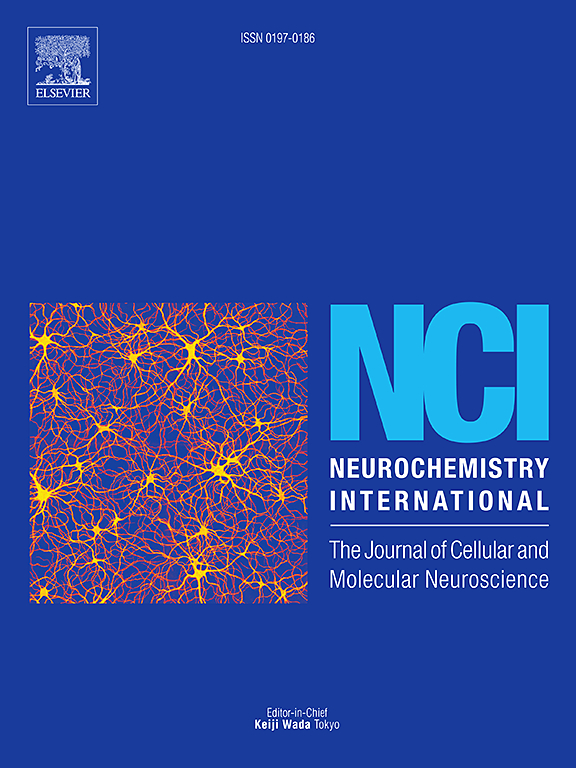Previous strength training attenuates ouabain-induced bipolar disorder-related behaviors and memory deficits in rats: Involvement of hippocampal ERK/CREB and PI3K/AKT/mTOR pathways
IF 4
3区 医学
Q2 BIOCHEMISTRY & MOLECULAR BIOLOGY
引用次数: 0
Abstract
Bipolar disorder (BD) is a central nervous system condition that is typified by fluctuations in mood, oscillating between depressive and manic, and/or hypomanic episodes. The objective of this study was to test the hypothesis that strength training may act as a potent protector against behavioral and neurochemical changes induced by BD. A strength training protocol was performed with adult male Wistar rats, and seven days following the conclusion of training, a single ouabain injection was administered. Following ouabain administration, the animals were subjected to behavioral tests after the seventh (manic period) and fourteenth (depressive period) days. Subsequently, rats were euthanized and the hippocampus was collected for western blotting assays. We demonstrated that strength training provided protection against ouabain-induced behavioral changes, both during the manic and depressive periods, including increased locomotor activity, risk-taking and aggressive-like behaviors, and impaired memory performance. Furthermore, physical training protected against ouabain-induced decrease of neurogenesis/neuroplasticity-related pathways, including BDNF/TrKB/ERK/CREB and PI3K/AKT/mTOR/p70S6K. These findings suggest that strength training has a protective effect, attenuating or preventing BD-induced deficits, and may have therapeutic potential as an adjuvant treatment for this patient population in the future.

先前的力量训练减弱了大鼠的维卡因诱导的双相情感障碍相关行为和记忆缺陷:海马ERK/CREB和PI3K/AKT/mTOR通路的参与
双相情感障碍(BD)是一种以情绪波动为典型特征的中枢神经系统疾病,在抑郁、躁狂和/或轻躁发作之间摇摆。本研究的目的是验证力量训练可能作为对抗双相障碍引起的行为和神经化学变化的有效保护的假设。对成年雄性Wistar大鼠进行了力量训练方案,在训练结束后7天,给予单次瓦巴因注射。给药后,分别于第7天(躁狂期)和第14天(抑郁期)进行行为测试。随后,对大鼠实施安乐死,收集海马进行免疫印迹检测。我们证明,在躁狂和抑郁期间,力量训练都可以防止瓦巴因引起的行为改变,包括运动活动增加、冒险和攻击性行为,以及记忆表现受损。此外,体育锻炼可以防止瓦苦因诱导的神经发生/神经可塑性相关通路的减少,包括BDNF/TrKB/ERK/CREB和PI3K/AKT/mTOR/p70S6K。这些研究结果表明,力量训练具有保护作用,可以减轻或预防bd引起的缺陷,并且可能在未来作为辅助治疗对这类患者群体具有治疗潜力。
本文章由计算机程序翻译,如有差异,请以英文原文为准。
求助全文
约1分钟内获得全文
求助全文
来源期刊

Neurochemistry international
医学-神经科学
CiteScore
8.40
自引率
2.40%
发文量
128
审稿时长
37 days
期刊介绍:
Neurochemistry International is devoted to the rapid publication of outstanding original articles and timely reviews in neurochemistry. Manuscripts on a broad range of topics will be considered, including molecular and cellular neurochemistry, neuropharmacology and genetic aspects of CNS function, neuroimmunology, metabolism as well as the neurochemistry of neurological and psychiatric disorders of the CNS.
 求助内容:
求助内容: 应助结果提醒方式:
应助结果提醒方式:


